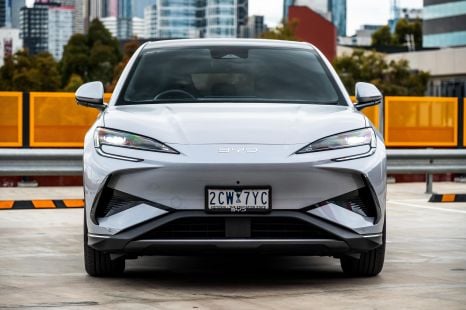

James Wong
2026 BYD Sealion 7 review
5 Hours Ago
A year or so after going on sale globally, the Ford Ranger has landed in the States with a few tweaks and different engine lineup.

Journalist


Journalist
The latest Ford Ranger is about to go on sale in North America, about a year after the popular ute became available in the rest of the world.
Compared to the outgoing Ranger, there seem to be fewer differences between the global and American versions. Last time around, the US Ranger had a unique bonnet and tailgate, rode on taller suspension, and used a single wheelbase setup for both super and crew cab bodies.

This time around, the North American Ranger is only available in one body style, a four-door crew cab. External differences seem to be limited to smaller details, such as the side marker lights built into the wheel arch protectors, and altered graphics for the tail lights.
The US Ranger is 5350mm long, 1920mm wide, 1890mm tall, and rides on the same 3270mm wheelbase as the global ute. Ground clearance is 240mm on 4×2 models, and 260mm on 4×4 variants.
Given diesel engines aren’t popular Stateside, unless we’re talking about larger work-oriented pickup trucks such as the Ford Super Duty and Chevrolet Silverado HD, it’s no surprise to learn the American Ranger lineup consists purely of turbocharged petrol engines.
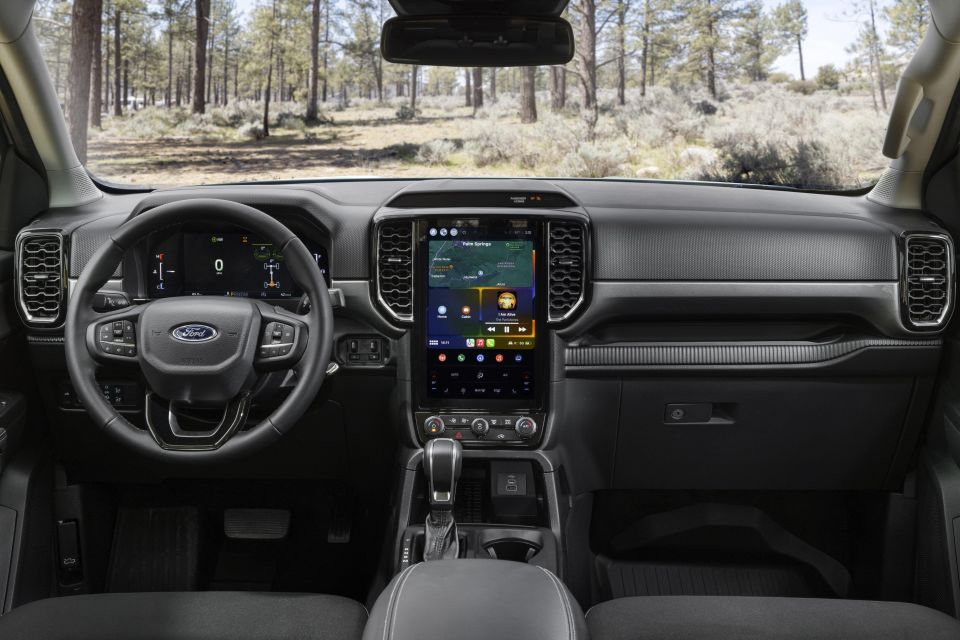
Standard is the Ford’s 2.3-litre turbocharged four-cylinder EcoBoost petrol engine, which is rated at 201kW of power and 420Nm of torque.
All regular Ranger variants can be optioned up with a 2.7-litre twin-turbo EcoBoost V6 petrol engine that’s said to develop 235kW and 542Nm.
Both engines are exclusively mated to a 10-speed automatic transmission. Rear-wheel drive is the base configuration, with an electronic shift-on-the-fly 4×4 system available.
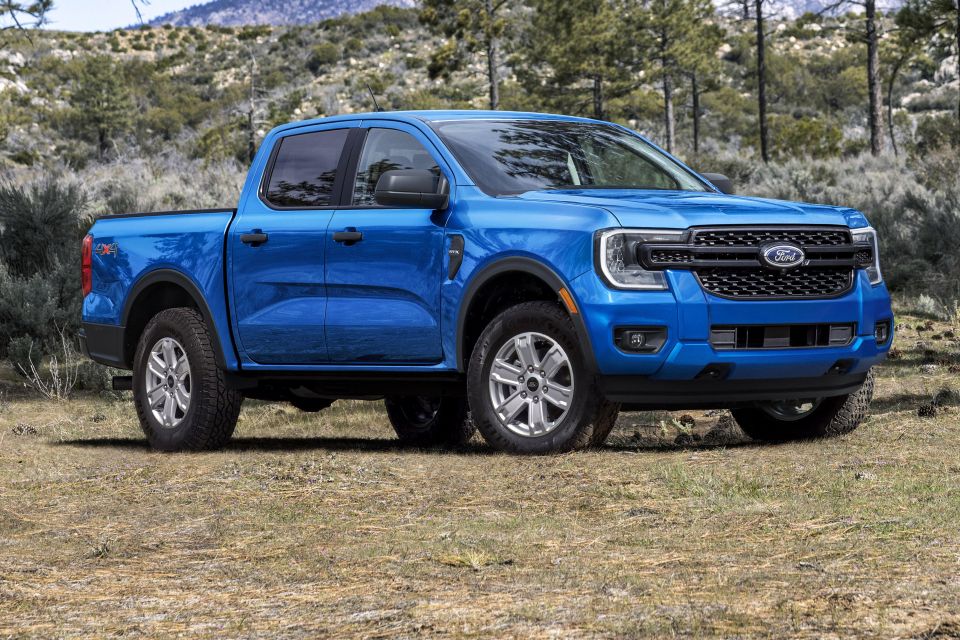

In the US, the Ranger has a maximum payload rating of 819kg (1800 pounds), and a maximum towing capacity of 3400kg (7500 pounds).
Unlike the current car, the new Raptor will be sold in the US too. Like the global version, it’s fitted with a 3.0-litre twin-turbo V6 petrol engine that generates 302kW and 583Nm – up 10kW on the Australian-spec model.
The Ranger Raptor has a bold Ford-branded grille, a wider stance matched with extended wheel arch protectors, and 33-inch BFGoodrich all-terrain KO3 tyres on 17-inch alloy wheels. It rides on long-travel suspension with Watts link setup at the rear, and 2.5-inch Fox Live Valve shocks.


Inside, the cabin should feel instantly recognisable to Ranger aficionados from other parts of the world. An 8.0-inch digital instrumentation display and 10.1-inch touchscreen are standard, as is a 4G LTE modem.
Higher-spec models have a 12.4-inch instrumentation cluster and a 12.0-inch touchscreen running the latest Sync 4A infotainment system.
Available features include an exterior zone lighting system that can be controlled through the touchscreen or the FordPass smartphone app, a 400W inverter with outlet in the tray, and an integrated side step behind the rear wheels.
Driver assist items extend to adaptive cruise control with stop and go operation, automated parking, trailer guidance lines and prompts, and blind-spot monitoring that takes an attached trailer into account.
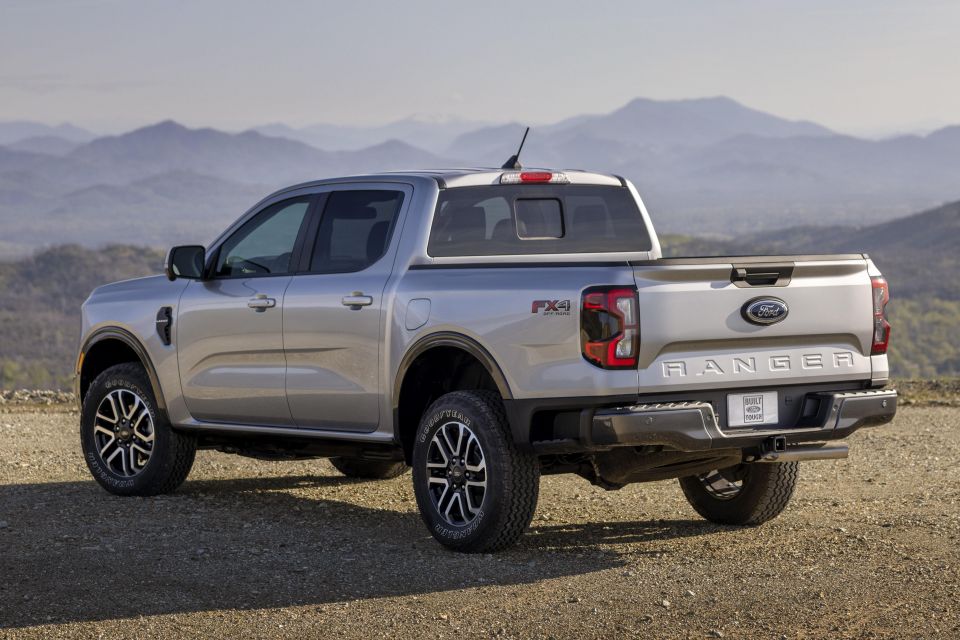
One item notable by its absence is the hands-off-the-wheel, eyes-on-the-road Blue Cruise Level 2 autonomous driving system, which works on select highways in Canada and the US. At present Blue Cruise is only available on the Mustang Mach-E, F-150, and Expedition.
While Australia-bound Rangers are built in Thailand, and other global markets are served by Ford’s South African factory, the North American Ranger is built in Wayne, Michigan.
The new Ranger goes on sale soon with the first cars arriving in owners’ driveways by the middle of the third quarter, although buyers who opt for a 2.7-litre V6 model will have to wait until around November.

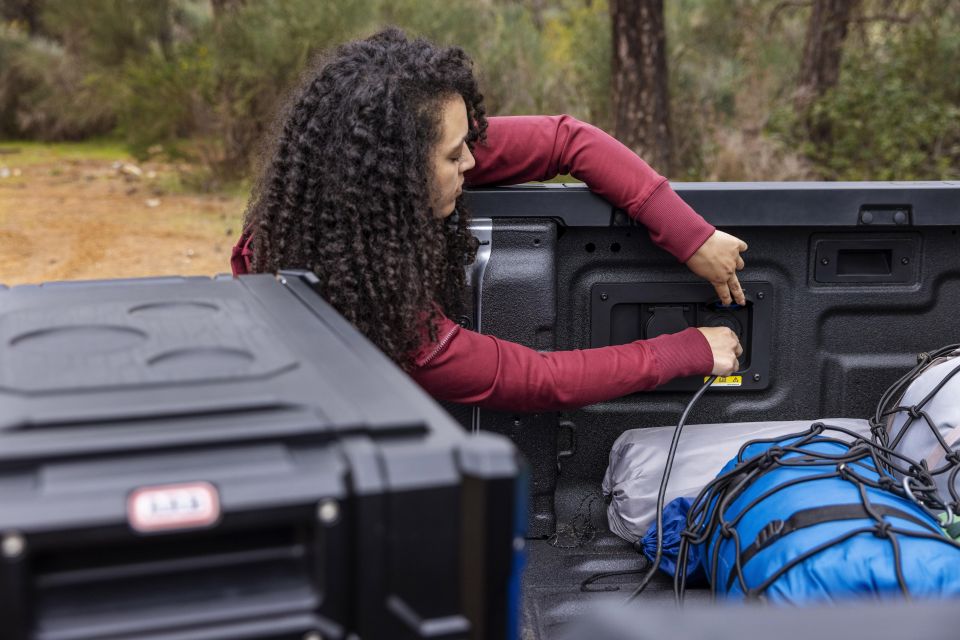
It will be interesting to see if the new model will help revive the Ranger’s fortunes in the US. Last year, sales fell almost 40 per cent to 56,987, meaning it lost its usual second place behind the Toyota Tacoma.
In 2022, the Ranger was outsold by the Tacoma (215,853), Chevrolet Colorado (89,187), Jeep Gladiator (77,855), Nissan Frontier (76,185), and even the smaller Ford Maverick (74,370).
It did manage to stay ahead of the Honda Ridgeline (42,762), Hyundai Santa Cruz (36,480), and GMC Canyon (27,821).
MORE: Everything Ford Ranger
Derek Fung would love to tell you about his multiple degrees, but he's too busy writing up some news right now. In his spare time Derek loves chasing automotive rabbits down the hole. Based in New York, New York, Derek loves to travel and is very much a window not an aisle person.


James Wong
5 Hours Ago
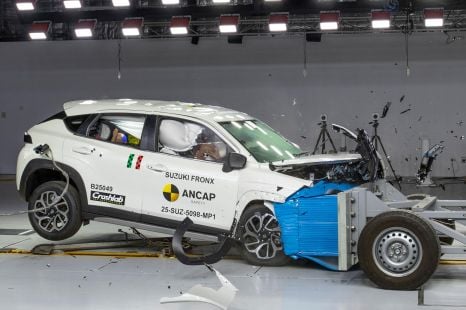

Damion Smy
14 Hours Ago
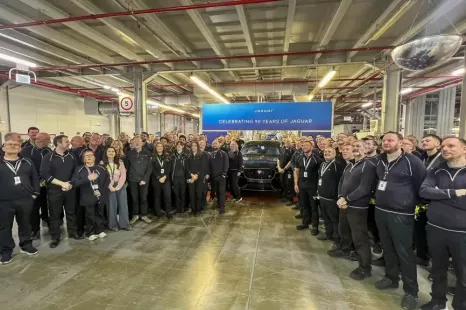

Damion Smy
17 Hours Ago
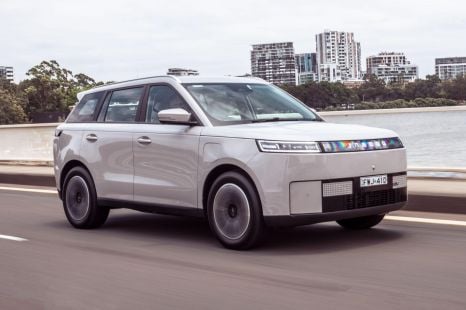

Josh Nevett
19 Hours Ago
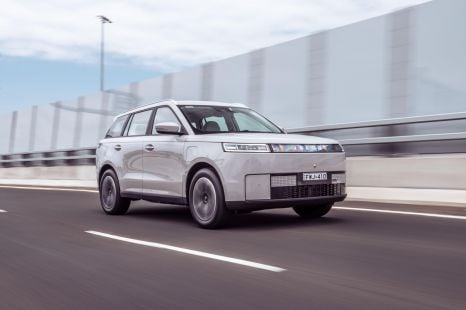

Josh Nevett
19 Hours Ago
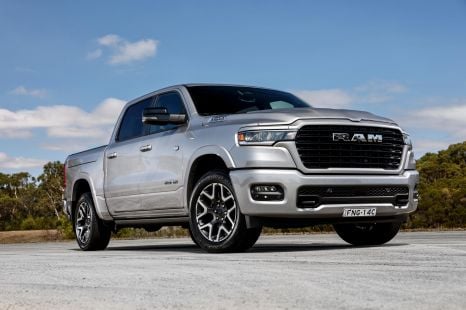

Damion Smy
20 Hours Ago